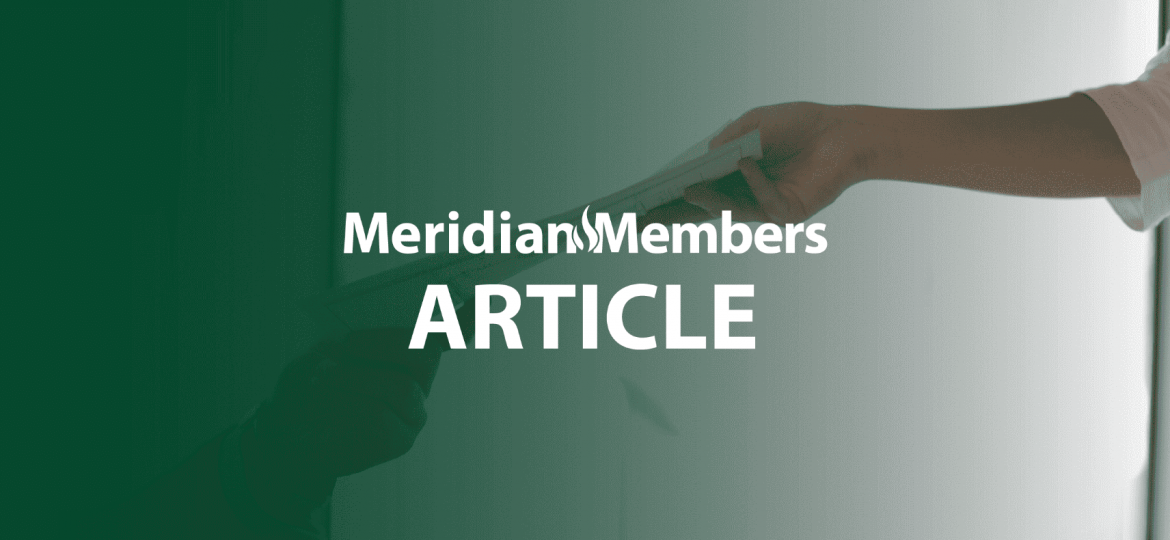
Ten or fifteen years ago, who would have dreamed that there would be lenders knocking at your door, wanting to lend you money for a petroleum-related project? My how the times have changed!
What caused this proliferation of lenders was “securitization.” Essentially, anyone with financial background and some backing could make mortgage-based loans. Once enough loans were made, say $100 million, those loans could then be sold in the bond market for a rate in excess of the loan interest rate.
Securitization of loans is not a new concept. Banks have traditionally bundled loans into bond-type investment transactions for years. What is new is the emphasis and specialization on petroleum properties. Once one or two lenders came into the market, others quickly followed.
Everything was going along fine with these transactions until the bond market had a serious disruption. What surprised a few that already had commitments from lenders but no funds yet was that the lender could change rates. This was due to fine-print in the loan commitment.
Why are marketers attracted to alternative financing deals? The main reason is minimal loan covenants and lack of personal guarantees. Be prepared, however, for quite onerous loan documentation once you say yes. Since these deals are sold in the marketplace, the documentation is extensive.
If you are in the market for a loan, beware of the financial stability of your lender, as well as the covenants and loan servicing later on down the road. Here is a list of questions you should ask alternative lenders:
1) How long have you been doing petroleum industry financing? Beware of any“new kids” on the block. If less than one-year in the industry, be careful.
2) What is the total number and dollar amount of loans you have funded in the past three months? Get a reading on the activity level of the lender. You want an experienced lender that has done lots of petroleum deals recently. You might even ask about activity in the past month to see how they are handling the erratic bond market. Did it cripple their operations?
3) Where do your loan funds come from? Most alternative lenders will tell you they sell their loans in the marketplace, but this does not reveal where they get the money to begin with! More stable lenders will have firm backing in the form of a credit line from a bank or refiner (EMAC, backed by Koch Refining 949-399-8941). Also, not all alternative lenders sell their loans. Some of the older institutions, such as Heller Financial (888-774-6512) are self-funded.
4) Do you service my loan after it funds? Some lenders make loans and then pay a third party to do all the accounting work after the loan is funded. It is usually preferable to deal with a lender who services the loan themselves after funding.
5) Who will I make my payments to? This is just another double-check on who takes care of you after the loan is funded. If they tell you they service your loan but then you make payments to some other institution, you’re getting double-talk.
6) Are there any fees for my loan servicing? Some lenders charge monthly fees for loan servicing whereas others do not. Know all costs up front.
7) Who will be checking my loan covenants? This is a hugely important question to ask since most alternative financing loans contain cash flow covenants. A lender can actually call your loan if your property does not meet cash flow ratio requirements. The worst time for a lender to ask you for a pay down is when your store isn’t performing up to expectations! Make sure you know who you’ll be dealing with in the event of adverse financial problems.
8) If I needed a change in covenants once my loan is funded, is that possible and who would I deal with to do that? With some lenders, you will not be able to change your covenants. You need to know this up front. If there is flexibility, you should know who to call and how to get in contact with them.
There are a few banks that are now offering loan products similar to the alternative lenders (fixed rates, no guarantees, minimal covenants, etc.), but without some of the inflexibility of non-bank lenders. At least one, Citibank, has been showing up at industry trade shows with a group of lenders devoted to this type of lending (Citibank Petroleum Finance Group, 914-899-7052). You may also find bank programs and other direct fund lenders can handle leasehold properties whereas securitized lenders typically want only fee-simple transactions.
Alternative lenders are providing a much-needed service to our industry. Just be sure to do your homework, especially if upsets continue in the bond market. Also remember it’s wise to have options. No matter who you do business with, keep one or two other lenders in the waiting room. You never know when you might need them!

